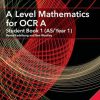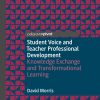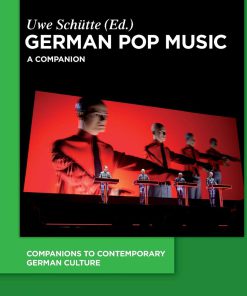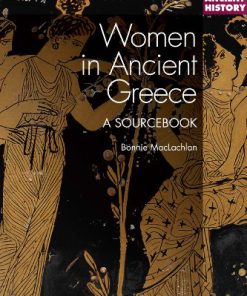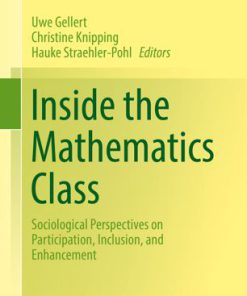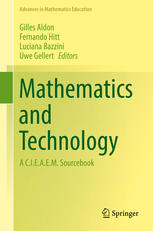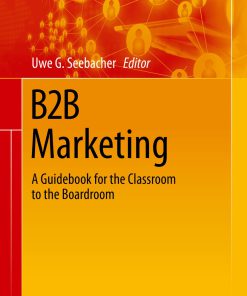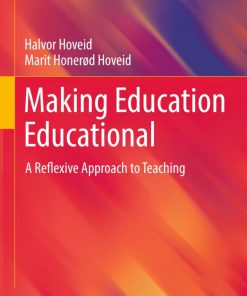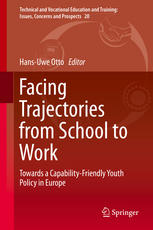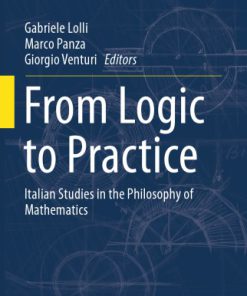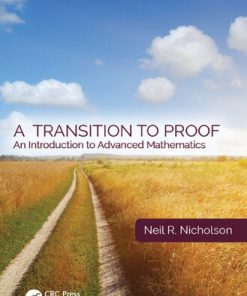Educational Paths to Mathematics A C I E A E M Sourcebook 2015th Edition by Uwe Gellert, Joaquim Gimenez Rodriguez, Corinne Hahn, Sonia Kafoussi 3319154095 9783319154091
$50.00 Original price was: $50.00.$25.00Current price is: $25.00.
Educational Paths to Mathematics: A C.I.E.A.E.M. Sourcebook 2015th Edition by Uwe Gellert, Joaquim Gimenez Rodriguez, Corinne Hahn, Sonia Kafoussi – Ebook PDF Instant Download/DeliveryISBN: 3319154095, 9783319154091
Full download Educational Paths to Mathematics: A C.I.E.A.E.M. Sourcebook 2015th Edition after payment.
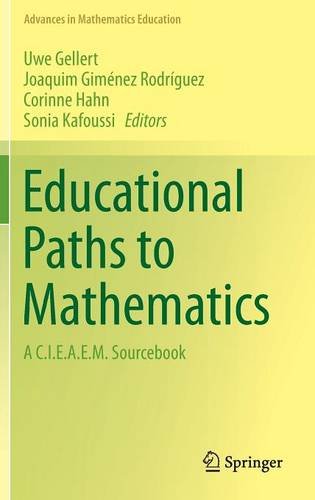
Product details:
ISBN-10 : 3319154095
ISBN-13 : 9783319154091
Author: Uwe Gellert, Joaquim Gimenez Rodriguez, Corinne Hahn, Sonia Kafoussi
This book offers fresh insight and understanding of the many ways in which children, youth and adults may find their paths to mathematics. The chapters of the volume offer and analyse promising new ways into mathematics. The focus is on spaces and modalities of learning, dialogue and inquiry, embodiment and aesthetic experience, information and communication technology and on the use of mathematics in public communication. The chapters present new mathematical activities and conceptions enriching the repertoire of mathematics education practices. Critical commentaries discuss the innovative potential of the new approaches to the teaching and learning of mathematics. As a consequence, the commentaries point to requirements and open issues in the field of research in mathematics education. The volume is remarkably international. Teachers and researchers from 14 countries authored 21 chapters and 7 commentaries. The reader is invited to reflect on the particular effect of presenting avenues to mathematics contrived in diverse national settings in which the praxis of mathematics education might look different compared to what happens in the reader’s place. The book starts a series of sourcebooks edited by CIEAEM, the Commission Internationale pour l’Etude et l’Amélioration de l’Enseignement des Mathématiques / International Commission for the Study and Improvement of Mathematics Education.
Educational Paths to Mathematics: A C.I.E.A.E.M. Sourcebook 2015th table of contents:
Part I: Cultural Tensions in the Field of Mathematics Education
Re-interpreting Students’ Interest in Mathematics: Youth Culture and Subjectivity
Introduction
What Existing Research Has to Offer
Beyond Disciplinary Boundaries in Mathematics Education Research
School Mathematics as a Social, Cultural, Political and Historical Battlefield
School Mathematics as a Field of Modern Subjectivity
Youth in a Postmodern Cultural Field of Becoming
Conclusion
References
Connecting Place and Community to Mathematics Instruction in Rural Schools
Motivating Assumptions and Their Basis in Extant Literature
Methods
Data Collection
Phase One: Cross-Case Comparison
The Sample
Underwood, Ohio
Gladbrook, Alabama
Hanover, Kentucky
Hamilton Collaborative, Nebraska
Twin Oaks, Vermont
Edgewater, Maine
Grover, Washington
Protocols and Procedures
Phase Two: The National Survey
The Sample and Questionnaire Development
Results
Theme-by-Theme Analysis
Relevance
Sustainability of Place-Based Approaches
Social-�Class Interactions
Subtheme A: Place-Based Education and the University-Intending Students
Subtheme B: Rural Insufficiency and Rural Affordance
Subthemes C and D: The Egalitarian Local/Elite Cosmopolitan Continuum
Discussion
Appendices
Appendix A
Appendix B
References
Establishing Mathematics Classroom Culture: Concealing and Revealing the Rules of the Game
Introduction
Mathematics Classroom Culture
The Episodes
Episode 1: The Race to Twenty and Classification
Classification and Recognition Rules
Dual Recontextualisation
From Dual Recontextualisation to Dual Classification
Framing and Implicit vs. Explicit Pedagogy
Classification and Framing in the Race to Twenty: Brousseau
The Race to Twenty: Mr. Black and Brousseau
Episode 2: T-Tables
Classification of Communication
Recognition and Realisation Rules: Finding the Correct ‘Other Words’
Classification of Praxeology: A Little Tiny Equation
Does Everyone in Mr. White’s Class Have the Same Access?
Conclusion
References
Part II: Working with Adults
Learning Mathematics In and Out of School: A Workplace Education Perspective
Democracy and Pedagogic Rights
The Economic Realities of Pharmaceutical Manufacturing
Calculations and Computing in the Pharmaceutical Manufacturing Industry
Calculations A: Estimate, Calculate, and Record Workplace Data
Calculations B: Use Routine Measuring Instruments. Complete Routine Arithmetic Calculations. Chart
Calculations C
Basic Computer Skills
Quality Assurance A
Industrial Communication A
Workplace Observations
Pedagogic Design: Addressing the Tensions and Contradictions
Workplace Competencies
Techno-mathematical Literacies (TmL)
Work Process Knowledge
Communication
What Are the Implications for Institutionalised Mathematics Education?
Revisiting Democracy
References
Mathematical Modelling and Bank Loan Systems: An Experience with Adults Returning to School
Introduction
Adult Mathematics Education
Students’ Profile
Methodological Choices
Mathematical Modelling
The Price System and the Constant Amortisation System
Kinds of Discussions
Results
Conclusions
References
Working with Adults: A Commentary
A Sociological Look at the Mathematics Skills Used in the Workplace
Mathematics Modelling Within Adult Education
Further Comments: Mathematics and Democracy
References
Part III: Working with Pre-schoolers
‘Number in Cultures’ as a Playful Outdoor Activity: Making Space for Critical Mathematics Ed
Introduction
A Critical Perspective for the Learning of Mathematics
Designing for a Critical Perspective on Number
Number in Cultures: Imagining a Critical Counter Practice
A Story, a ‘Magic Board’, and the Game ‘My Name: My Number’
‘Number in Cultures’: Experiencing a Counter Event
Narrating a Story: Opening up ‘a Space of Appearance’
Introducing Number in Cultures: Expanding Possibilities for Memory-Work
Playing the Game: Creating a Space to Meet and Act with the ‘Other’
Concluding Remarks
References
Fairness Through Mathematical Problem Solving in Preschool Education
Theoretical Background
Fairness and Early Years
The Origins of Fairness in Young Children
Significant Factors in Studying Fairness in Young Children
Materials and Methods
Results
Discussion and Conclusions
References
How Do Fair Sharing Tasks Facilitate Young Children’s Access to Fractional Concepts?
Introduction
Background
Core Domains
Early Fraction Knowledge
Perspective-Taking and Mathematics
Prosociality and Fair Sharing
Method
Participants
Demographic Survey
Fraction Items
Prosocial Tasks
Theory of Mind Tasks
Results
Discussion
References
Working with Pre-schoolers: A Dual Commentary
Sixto Romero Sánchez: A Brief Historical Sketch on the Teaching and Learning of Mathematics in
Michaela Kaslová: From Comenius to Developmental Psychology
References
Part IV: Taking Spaces and Modalities into Account
Digital Mathematical Performances: Creating a Liminal Space for Participation
Introduction: Disembodied, Antiperformative Traditions in School Mathematics Pedagogy
Performative Pedagogy
Liminality and Play in Liminal Spaces
Some Examples of Digital Mathematical Performance Spaces
Digital Math Performance
Vi Hart’s Mathematics Videos
‘Mathematics Through Dance’ Videos
Discussion: Making Digital Mathematical Performance Spaces More Participatory
References
Participation in Mathematics Problem-Solving Through Gestures and Narration
Introduction
Theoretical Background
Teaching Experiment
Data Analysis
Discussion
References
Considering the Classroom Space: Towards a Multimodal Analysis of the Pedagogical Discourse
Introduction
The Semiotic Potential of the Classroom Space
The Study
The Setting of the Research: Place—Time—Participants
The Research Questions
The Methodology
Discussing the Results
Conclusion
References
Commentary: Semiotic Game, Semiotic Resources, Liminal Space—A Revolutionary Moment in Mathematic
References
Part V: Criticising Public Discourse
Numbers on the Front Page: Mathematics in the News
Introduction
Mathematics and Politics
The Context of the Study
The Method of Analysis
The Numerical Discourse of Newspapers’ Front-Pages
The Choice of Numbers in the Headlines: Creating the Context
The Choice of Numerical Genre: Interacting with the Readers
The Choice of Sentences: Influencing the Reader’s Interpretation
The Choice of Visual Displays: Reproducing the Numbers
The Participants in the Newspapers’ Front-Pages: Filtering Access to Numerical Discourse
The Power Relations Behind the Headlines: Speaking for Whom to Whom
Concluding Comments
References
On the Role of Inconceivable Magnitude Estimation Problems to Improve Critical Thinking
Introduction
Real-Life Problems, Context and Authenticity
Estimation and Fermi Problems
Inconceivable Magnitude Estimation Problems
Designing the Classroom Experience
The Classroom Experience
Conclusions
References
Criticizing Public Discourse and Mathematics Education: A Commentary
Numbers on the Front Page: Mathematics in the News
Solving Mathematics Problems in Real Life Contexts
Conclusion
References
Part VI: Organising Dialogue and Enquiry
Facilitating Deliberate Dialogue in Mathematics Classroom
Introduction
Participation for a Deliberative Dialogue in Mathematics Classrooms
A Critical Theory: Deliberate Dialogue and Deliberative Communication
Case Study 1: Future Teachers Facing Deliberate Dialogues
Case Study 2: On-Line Deliberate Dialogue in a Secondary School Mathematics Classroom
Discussion
References
Inquiry-Based Mathematics Teaching: The Case of Célia
Introduction
What Is Inquiry-Based Teaching in Mathematics?
An Inquiry-Based Mathematics Classroom: Teacher Célia’s Teaching Practices
The Context of the Research
The Lesson “Cubes with Stickers”
Introduction of the Task
Development of the Task
Discussion of the Task
Systematizing Mathematical Learning
Final Considerations
References
Using Drama Techniques for Facilitating Democratic Access to Mathematical Ideas for All Learners
Introduction
Drama in Education and Critical Mathematics Education
The Experiment: Design and Implementation
Setting: Participants, Framework and Methods
Designing a Geometry Project: ‘Is Our World Euclidean?’
Observations
Drama-Based Teaching and Students’ Learning of Geometry Notions
Drama in Education and Critical Mathematics Education
Concluding Remarks
References
Organising Dialogue and Enquiry: A Commentary
OBIT-Model*
OBIT in Education
Tasks
Role of the Teacher
Final Considerations
References
Part VII: Providing Information Technology
Educational Laptop Computers Integrated into Mathematics Classrooms
Introduction
The UCA Program: The Beginning
Research Development
Classroom Action-Research at the Mathematics Class
Discussion
References
Technology and Education: Frameworks to Think Mathematics Education in the Twenty-First Century
A Positioning of the Problem
Towards a Framework That Takes the Complexity of the Topic into Account
Documentational Genesis
Didactic Incidents
Multi-representation and Experiences in Mathematics
Summarizing the Framework
Using the Framework for Classroom Research
Context
Examples
Conclusion
References
Technology in the Teaching and Learning of Mathematics in the Twenty-First Century: What Aspec
References
Part VIII: Transcending Boundaries
Family Math: Doing Mathematics to Increase the Democratic Participation in the Learning Process
Recent Research About Family Engagement Learning Processes
Families Doing Mathematics for a Democratic Participation in the Learning Process: The Case of
Further Research: New Horizons for the Coming Years
References
Service-Learning as Teacher Education
Research Context
What Happens When Intergenerational Groups Come Together Mathematically?
Outcomes
Self-Identification as a Mathematical Actor
The Potential of Almost Any Mathematics to Be Meaningful
Entrepreneurs Who Can Make a Difference
Philanthropy Is Also Entrepreneurship
Service Learning as the Context for Research
Service Learning as Teacher Education: Implications
The Changing Role of Assessment
Radical Transformation and a Horizon
An Ethics of Service-Learning
Service-Learning as Teacher Education: Discussion
References
The Learning and Teaching of Mathematics as an Emergent Property Through Interacting Systems and
Reference
People also search for Educational Paths to Mathematics: A C.I.E.A.E.M. Sourcebook 2015th:
mathematics pathway
paths to maths
educational mathematics
mathematics path
education needed to be a mathematician
Tags: Educational Paths, Mathematics, Uwe Gellert, Joaquim Gimenez Rodriguez, Corinne Hahn, Sonia Kafoussi
You may also like…
Poetry - American Poetry
Politics & Philosophy - Social Sciences
Women in Ancient Greece A Sourcebook 1st Edition by Bonnie Maclachlan ISBN 9781441179630 1441179631
Uncategorized
Education Studies & Teaching
Business & Economics
Education Studies & Teaching - School Education & Teaching
Making Education Educational A Reflexive Approach to Teaching Halvor Hoveid
Education Studies & Teaching
Science (General)
Science (General)


